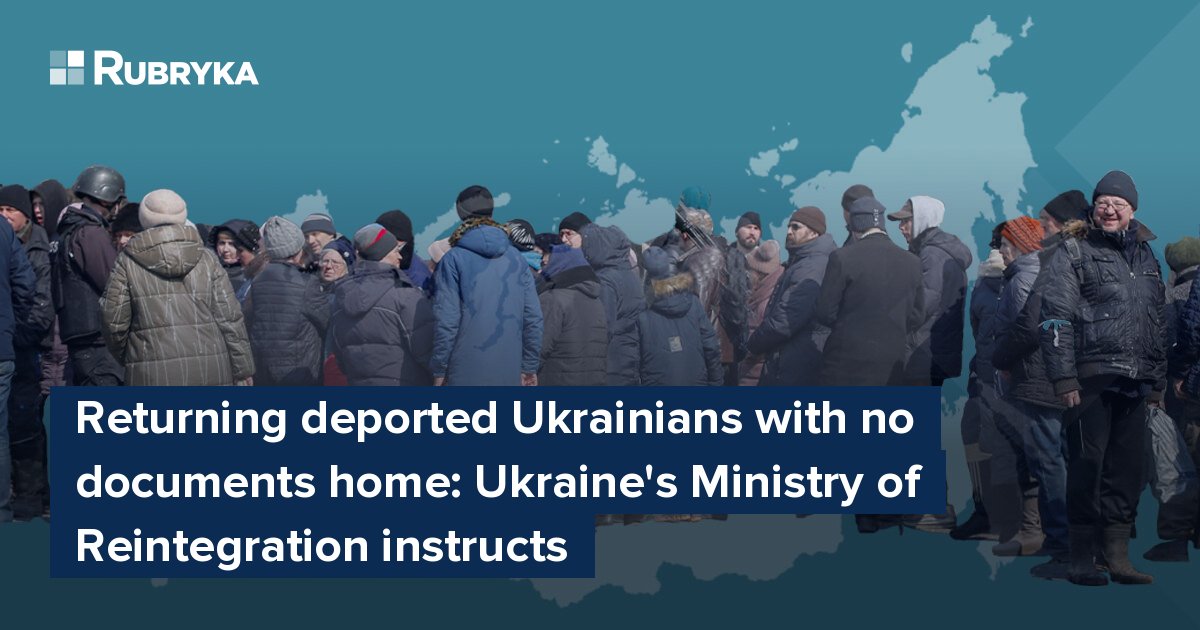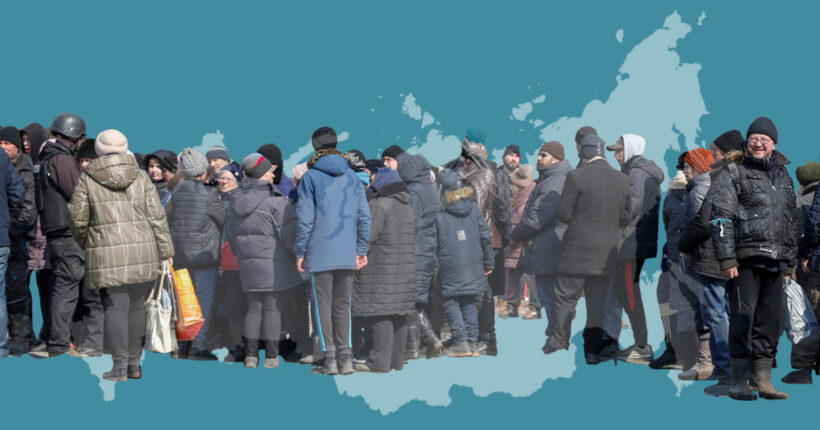
What is the problem?
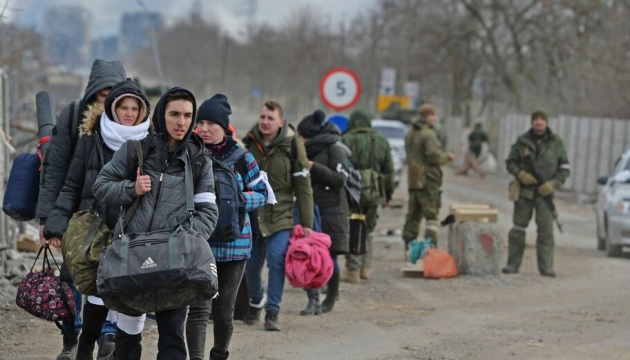
russia has already forcibly deported more than 1.6 million Ukrainians during the full-scale war. Many passed through the occupiers' filtration camps, where people were abused and intimidated, and many had their documents taken away. Currently, at the whim of the aggressor country, our compatriots are scattered throughout the territory of the russian federation.
Lack of identity documents and confirmation of Ukrainian citizenship is one of the main reasons why deported Ukrainians cannot return home.
What is the solution?
Usually, citizens of our country who have found themselves abroad and lost their passport documents can apply to foreign diplomatic institutions of Ukraine and obtain an identity card to return to Ukraine. But in the situation with russia, it is impossible. Ukraine severed diplomatic relations with the russian federation on the first day of the full-scale armed aggression. Since March 13, the Ukrainian embassy in Moscow and consular offices of Ukraine have stopped their work on the territory of the aggressor country.
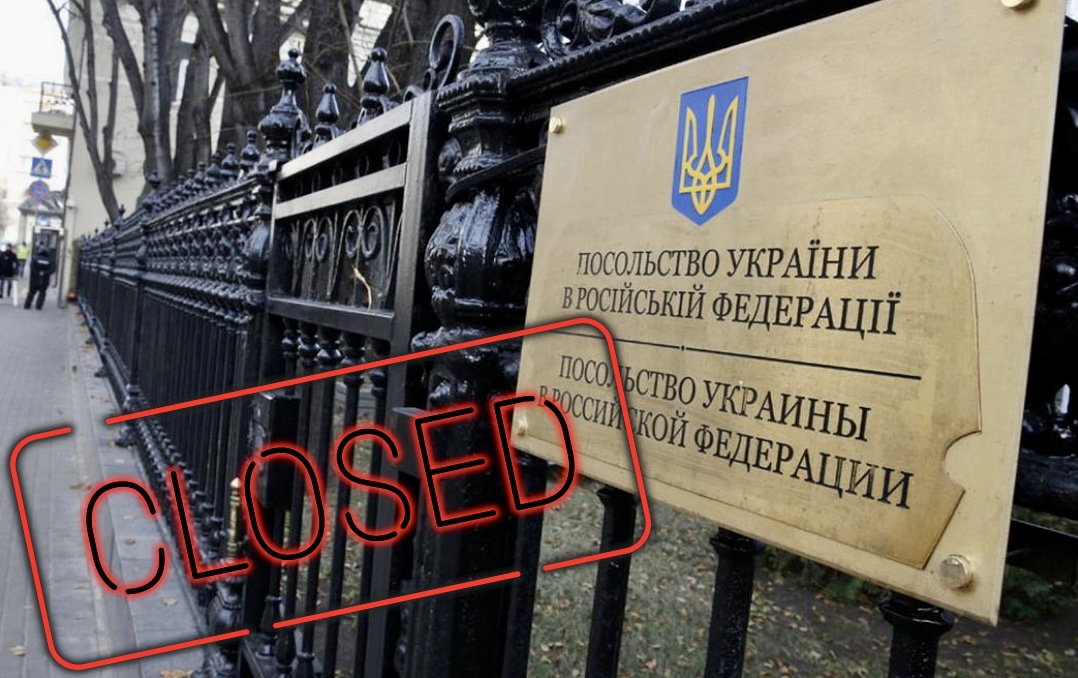
However, a solution was found: Ukraine figured out how to simplify and speed up the return of deported Ukrainians to their homeland. Ukraine's Ministry of Reintegration and the Cabinet of Ministers, the State Migration Service, and the Ministry of Internal Affairs introduced an experimental project that will last for a year. Thanks to the project, citizens who find themselves outside our country without any documents will be able to issue an identity card to return to their homeland without their presence.
Such a certificate will work according to the same principle as a regular identity card for returning to Ukraine, approved in 2017. But if the person themselves had to submit the data for obtaining such a document (for example, a tourist who lost the documents abroad) before, now these data can be submitted by the representatives, for example, relatives.
Halyna Kitral, a legal consultant, helped Rubryka understand how the experimental project would work and how to obtain a certificate.
How does it work?
"There are hundreds of thousands of such people. And we had already come across situations when Ukrainians were deported without any documents or had their documents taken away later. Therefore, we are launching an identity document for returning to Ukraine… We will do everything to help every Ukrainian to return home," Prime Minister Denys Shmyhal commented at a government meeting.
On October 21, 2022, the Cabinet of Ministers of Ukraine adopted Resolution No. 1201, "On the implementation of an experimental project on the issuance of an identity card for return to Ukraine on the territory of Ukraine." Now Ukrainians have been deported to russia, and stateless persons who have permanently lived in Ukraine will be able to issue an identity card for return to Ukraine on the territory of Ukraine. How?
As lawyer Halyna Kitral says that the issuance and transfer of certificates of return to Ukraine for persons who were forcibly deported to the territory of the aggressor state and lost their documents can be carried out without their presence. It can only be done at the request of their relatives, legal representatives, or Ukraine's Ministry of Reintegration.
Who can use the new procedure?
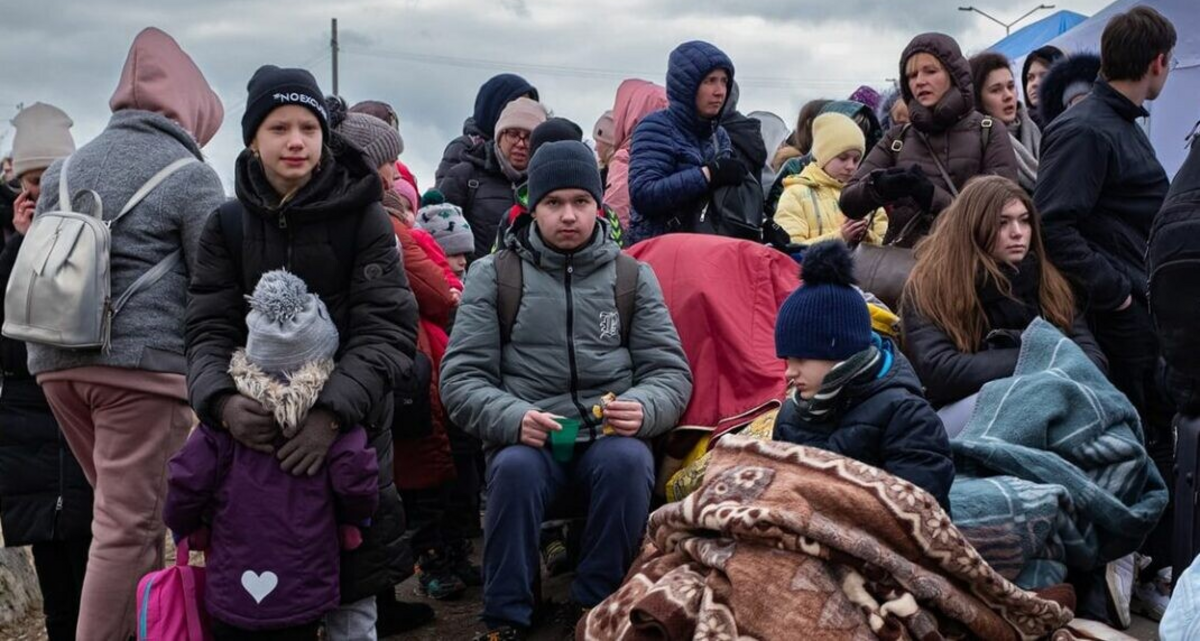
- Citizens of Ukraine who found themselves outside our country without any documents;
- Persons recognized by Ukraine as stateless persons, or stateless persons permanently residing in Ukraine, who were forcibly deported to the territory of the russian federation (if relevant information is available, see details here)
- persons under the age of 18, regarding whom there is no information in the Register or the State Migration Service's system.
Who and how can submit documents for issuing a certificate?
From November 14, the authorities of the State Migration Service will issue the identity card of a person deported to the territory of russia.
The following can apply to the State Migration Service to obtain such a certificate:
- one of the parents or another legal representative of a person at the age of 18;
- one of the parents;
- married couple;
- an adult child;
- native brother/sister;
- Ministry of Reintegration (official appeal).
You can find the contacts of the Ministry of Internal Affairs territorial subdivisions here.
What documents do you need to have?
The resolution stipulates that the following documents must be submitted to issue a certificate:
- A written application specifying information about the person about whom the certificate is issued. It is necessary to establish the following:
– surname, first name, patronymic (if available), including changed ones,
– date of birth,
– place of birth,
– the unique number of the entry in the Register (if available),
– registered/declared place of residence,
– circumstances that cause the need for a registration certificate,
– the method of subsequent transfer of the certificate to such a person. - A birth certificate or birth registration document issued by a competent body of a foreign state and legalized per the established procedure, unless otherwise provided by an international treaty of Ukraine, consent to the binding of which has been granted by the Verkhovna Rada of Ukraine (including its copy, certified in the established procedure), or an e-certificate of birth, or an extract from the State Register of Civil Status Acts of Citizens about the state registration of birth in the case of issuing a birth certificate for a person under the age of 18, regarding which there is no information in the Register or departmental system of the State Migration Service. In the absence of a birth certificate, such information is entered by an employee of the State Migration Service based on the information specified in the written application, which an employee of the State Migration Service subsequently checks.
- A document certifying the identity of a legal representative, a family member (a document certifying identity and confirming citizenship of Ukraine, or a document certifying a person and confirming their special status, e-passport, e-passport for traveling abroad, temporary residence e-permit, permanent residence e-permit, eDocument), and a document confirming the authority of the person (in the case of submission of documents by a legal representative) or the fact of family relations (in the case of submission of documents by a family member). Suppose the legal representatives or family members do not have documents confirming their authority or the fact of family relations. In that case, such information is entered by an employee of the State Migration Service based on the information specified in the written application, which is then checked by the employee of the State Migration Service according to the data of the State Register of Civil Status Acts of Citizens.
- Two color photographs of a person under the age of 18, about whom there is no information in the Register or the departmental system of the State Migration Service, size 3.5 x 4.5 centimeters (for pasting to the identity card) and size 10 x 15 centimeters (for entering a digitized image of the person's face by scanning to the departmental system of the State Migration Service) — in the case of issuing a certificate to a person under the age of 18, about whom there is no information in the Register or the departmental system of the State Migration Service.
If the deported person has no relatives in Ukraine or cannot apply to the State Migration Service branch due to their stay in the occupied territory, a certificate for the person's return can be issued upon an official application of the Ministry of Reintegration to the State Migration Service.
The Ministry of Internal Affairs has the right to refuse to issue a certificate if:
- A legal representative or a family member applied for a certificate whose authority to obtain a certificate is not confirmed by information from the State Register of Civil Status Acts or documents.
- The necessary documents have been submitted not in full.
- The data obtained from the departmental information systems, the Registry databases, and the departmental system of the State Migration Service do not confirm the information provided by the legal representative, family member, the Ministry of Reintegration or its volume is insufficient to identify the person.
In case of refusal, the written decision shall also state its grounds. If the circumstances due to which the rejection was received change or are eliminated, the applicant will have the right to apply again to the territorial branch of the State Migration Service.
What happens after submitting the documents?
- When accepting documents, an employee of the territorial branch of the State Migration Service checks the completeness of the submitted papers and the information contained in them, forms a statement questionnaire in the departmental system of the State Migration Service, and scans the specified documents.
- They also enter information about the person in the application questionnaire while using the information contained in the Register or the departmental system of the State Migration Service.
- After forming the application questionnaire, the employee of the territorial body of the State Migration Service prints it and gives it to the legal representative of a family member to check the correctness of the entered information.
- The legal representative, or family member, confirms the correctness of the entered information about the person in whose name the certificate is issued with signature.
- The certificate is issued without entering the signature of the person in whose name it is issued.
- indicated on the certificate code (a four-digit number) of the corresponding structural division of the State Migration Service, which issued it. The series and number, as the date of issuance of the certificate, are entered into the departmental system of the State Migration Service.
- The issued ID card is sent to the territorial branch of the State Migration Service. Then it is handed over to a legal representative, a family member, or sent to the Ministry of Reintegration. The latter is already organizing the transfer of the certificate to the person in whose name it is issued.
The certificate is issued free of charge within five working days from the date of submission of the application form. The validity period of the document is up to three months.
If you have additional questions, you can contact the hotline of the Ministry of Reintegration: for calls from abroad, use WhatsApp/Telegram/Viber messengers at +38(096)078-84-33.
How to hand over a ready certificate to a deportee?
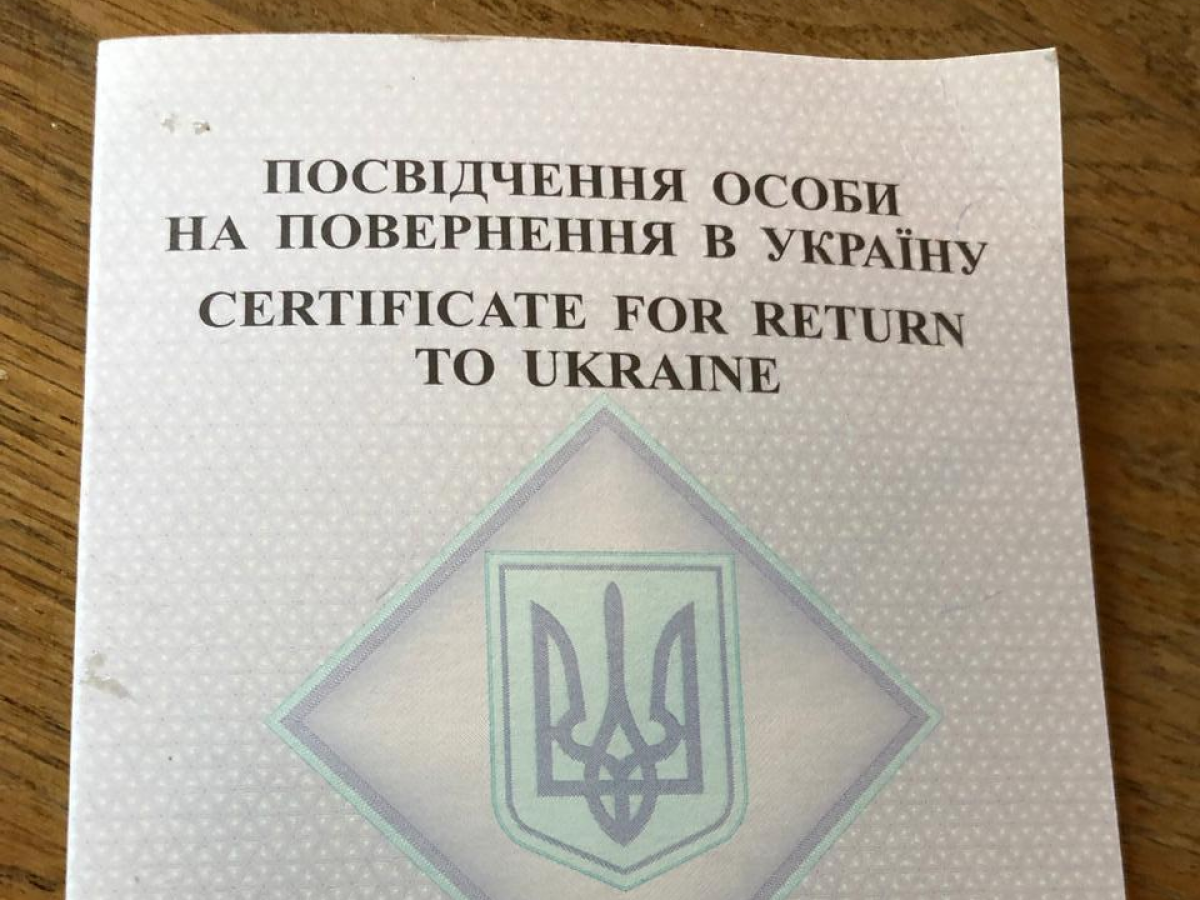
According to the established Procedure, the executed and issued "Certificate for the return of a person to Ukraine" must go to the person in whose name it was issued. Legal consultant Halyna Kitral draws attention to the fact that the Procedure does not specify in which form: electronic or paper. But judging by the context of the document, we are talking about the paper version of the certificate.
In the lawyer's opinion, the following ID transfer channels look more or less real:
- through relatives;
- with the help of volunteers;
- through international organizations.
Currently, Ukraine has no direct transport connection with russia. Because of this, the relatives of the deported person will have to face several logistical problems. Today, traveling to russia is expensive, long, and can be dangerous.
The project's initiators put more hope in volunteer initiatives and international organizations that continue to work in the region (for example, UNHCR, International Organization for Migration). It will be possible to find out whether this way will work only when the State Migration Service registers the first applications and the first return certificates issued in Ukraine. That is why the project is called experimental.
Even more helpful solutions!
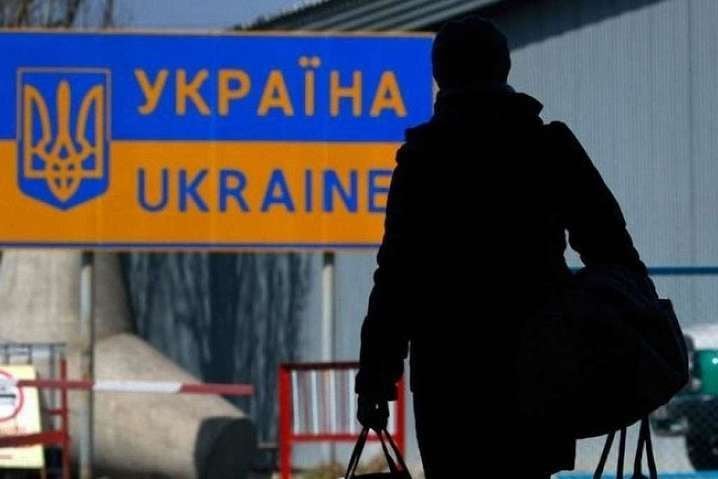
So whether the implemented experiment will be successful is too early to say. But experts note that the authorities are trying to find solutions and respond to various challenges of armed aggression, and it is very important. A new experimental procedure can help those Ukrainians who do not have documents and want to leave the russian federation to do so shortly. A certificate for the return of a person to Ukraine will allow them to leave through third countries (for example, Estonia, Latvia, Lithuania, and Georgia). Also, Ukraine can continue negotiations with partner states to determine the country whose diplomatic institutions in russia will be able to provide consular services to Ukrainians who still remain there.
In addition, as legal consultant Halyna Kitral notes, this important step will help identify our compatriots and stateless persons permanently residing in Ukraine who were forcibly deported to the territory of the russian federation. By processing the submitted applications, the state will know the number of people who were forcibly deported to Ukraine's territories, which are temporarily not controlled by our state, and to russia and Belarus.
Thanks to the implemented experimental project, people who were forcibly deported to the russian federation will have a chance to return home, and the state will get new data on how many people were forcibly deported from Ukraine by the occupiers.
This article was created by the Rubryka online publication within the Ukraine Rapid Response Fund program, implemented by IREX with the support of the US State Department. The content is the sole responsibility of the Rubryka online publication and does not necessarily reflect the views of IREX or the US State Department.


